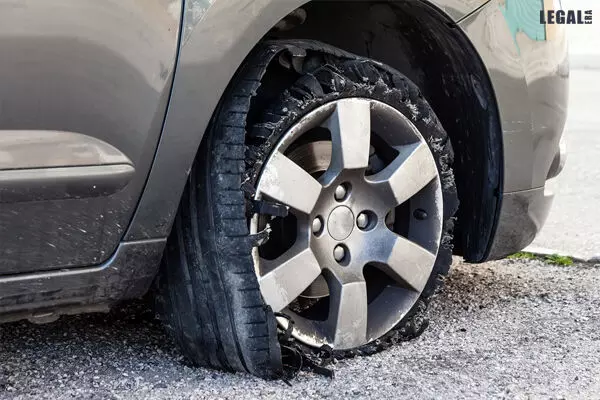- Home
- News
- Articles+
- Aerospace
- Artificial Intelligence
- Agriculture
- Alternate Dispute Resolution
- Arbitration & Mediation
- Banking and Finance
- Bankruptcy
- Book Review
- Bribery & Corruption
- Commercial Litigation
- Competition Law
- Conference Reports
- Consumer Products
- Contract
- Corporate Governance
- Corporate Law
- Covid-19
- Cryptocurrency
- Cybersecurity
- Data Protection
- Defence
- Digital Economy
- E-commerce
- Employment Law
- Energy and Natural Resources
- Entertainment and Sports Law
- Environmental Law
- Environmental, Social, and Governance
- Foreign Direct Investment
- Food and Beverage
- Gaming
- Health Care
- IBC Diaries
- In Focus
- Inclusion & Diversity
- Insurance Law
- Intellectual Property
- International Law
- IP & Tech Era
- Know the Law
- Labour Laws
- Law & Policy and Regulation
- Litigation
- Litigation Funding
- Manufacturing
- Mergers & Acquisitions
- NFTs
- Privacy
- Private Equity
- Project Finance
- Real Estate
- Risk and Compliance
- Student Corner
- Take On Board
- Tax
- Technology Media and Telecom
- Tributes
- Viewpoint
- Zoom In
- Law Firms
- In-House
- Rankings
- E-Magazine
- Legal Era TV
- Events
- Middle East
- Africa
- News
- Articles
- Aerospace
- Artificial Intelligence
- Agriculture
- Alternate Dispute Resolution
- Arbitration & Mediation
- Banking and Finance
- Bankruptcy
- Book Review
- Bribery & Corruption
- Commercial Litigation
- Competition Law
- Conference Reports
- Consumer Products
- Contract
- Corporate Governance
- Corporate Law
- Covid-19
- Cryptocurrency
- Cybersecurity
- Data Protection
- Defence
- Digital Economy
- E-commerce
- Employment Law
- Energy and Natural Resources
- Entertainment and Sports Law
- Environmental Law
- Environmental, Social, and Governance
- Foreign Direct Investment
- Food and Beverage
- Gaming
- Health Care
- IBC Diaries
- In Focus
- Inclusion & Diversity
- Insurance Law
- Intellectual Property
- International Law
- IP & Tech Era
- Know the Law
- Labour Laws
- Law & Policy and Regulation
- Litigation
- Litigation Funding
- Manufacturing
- Mergers & Acquisitions
- NFTs
- Privacy
- Private Equity
- Project Finance
- Real Estate
- Risk and Compliance
- Student Corner
- Take On Board
- Tax
- Technology Media and Telecom
- Tributes
- Viewpoint
- Zoom In
- Law Firms
- In-House
- Rankings
- E-Magazine
- Legal Era TV
- Events
- Middle East
- Africa
Tyre Bursting of a vehicle is not An Act of God: Bombay High Court

Tyre Bursting of a vehicle is not An Act of God: Bombay High Court
Upholds the Motor Accident Claims Tribunal’s direction to the insurance company to pay Rs.1.25 crores
The Bombay High Court recently ruled that a tyre burst of a vehicle is not an act of God, but human negligence.
The single-judge bench of Justice SG Dige dismissed the appeal filed by New India Assurance Company Limited against a 2016 ruling of the Motor Accident Claims Tribunal. The tribunal had directed the insurance company to pay Rs.1.25 crores, along with 9 percent interest, to the family of Makarand Patwardhan, who was killed in a car accident.
On 25 October 2010, Patwardhan (38) was travelling from Pune to Mumbai with two colleagues. The colleague, who owned the car, was driving in a rash and negligent manner and the rear wheel burst. The vehicle fell into a deep ditch, killing Patwardhan on the spot.
In its order, the tribunal had noted that the victim was the sole bread-earner of his family.
In its appeal before the high court, the insurance company said the compensation amount was exorbitant and the tyre burst was ‘an act of God’ and not negligence on the driver’s part.
However, Justice Dige rejected the contention. He stated that the dictionary meaning of the ‘act of God’ was ‘an instance of uncontrollable natural force’.
The bench held, "It refers to a severe unanticipated natural event for which no human is responsible. The bursting of a tyre cannot be termed an act of God. It is an act of human negligence."
The judge added there were various reasons for tyre burst such as high speed, underinflated, overinflated or second-hand tyres, and temperature.
The order read, "The driver or owner of the vehicle has to check the condition of the tyre before travelling. However, the burst of the tyre cannot be termed a natural act. It is human negligence."
The court added that merely stating that a tyre burst was an act of God cannot be a ground to exonerate the insurance company from paying the compensation.



